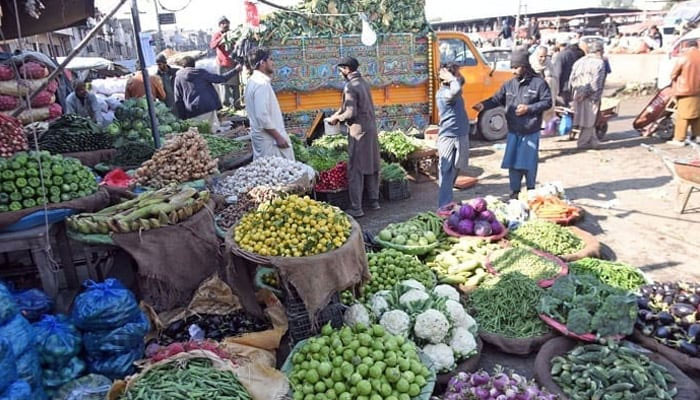The cost of inaction
LAHORE: Pakistan’s economy has consistently demonstrated resilience in the face of adversity, but the state’s failure to implement reforms and take corrective actions after each crisis has made the country increasingly vulnerable, even to mild shocks.
The economy’s resilience is driven by factors such as a large domestic market, a growing youth population, robust remittance inflows and a substantial informal sector, which cushions the economy during crises. However, the failure to formalize the informal sector has significantly reduced the state’s revenue.
Reliance on external borrowing, due to insufficient domestic revenue generation, is one of Pakistan’s key vulnerabilities. Persistent political instability and a heavy dependence on energy imports and other essential goods add to these vulnerabilities.
Informality in the economy remains entrenched due to several unaddressed issues. The high cost of formalization -- driven by regulatory burdens like taxes, licenses, and compliance costs -- discourages businesses from entering the formal sector. Informal businesses also face challenges in accessing formal credit markets, yet they continue to operate under more flexible, albeit informal, financial arrangements.
A weak regulatory framework, which lacks effective enforcement mechanisms, allows informal businesses to thrive without facing penalties. Additionally, low public trust in government institutions further discourages businesses from formalizing their operations.
Bureaucrats, who are the permanent face of government, often operate with little transparency. Key reforms needed in the bureaucracy include merit-based appointments and promotions, free from political interference, to ensure competent individuals are in leadership positions. The adoption of technology to track decisions and spending would help reduce corruption, while independent agencies that can audit, investigate, and hold bureaucrats accountable are also critical. Ensuring public access to government records would promote transparency.
It is naive to assume that informality does not benefit large domestic businesses -- it does, in multiple ways. Formal businesses often avoid paying full taxes by keeping part of their operations informal, which reduces their cost base. These companies frequently employ informal labour, which is cheaper and less regulated, allowing them to bypass labour laws. By leveraging informal channels, larger businesses can suppress competition and reduce operating costs in ways that smaller, formal businesses cannot.
Smuggling is a major component of the informal economy in Pakistan. Although it is often argued that Pakistan’s long, porous borders with its neighbours facilitate smuggling, India has managed to control smuggling despite its longer borders, thanks to better border management. India has heavily invested in border security infrastructure and technology, such as fencing and surveillance systems.
Indian customs and law-enforcement agencies impose stringent penalties on smugglers, discouraging these activities. Above all, India has shown a consistent political commitment to tackling smuggling, supported by coordinated efforts among various agencies.
Smuggling is rampant in Pakistan, not only due to porous borders and challenging terrain along the Afghan and Iranian borders but also because of corruption and under-resourced agencies that allow smuggling networks to flourish. Smugglers offer cheaper alternatives to heavily taxed or restricted goods, fuelling demand. Moreover, the different agencies involved in border management in Pakistan often operate in isolation, hindering effective control. Political will to combat smuggling is largely absent, with some politicians openly protecting smugglers.
-
 Andrew, Sarah Ferguson Refuse King Charles Request: 'Raising Eyebrows Inside Palace'
Andrew, Sarah Ferguson Refuse King Charles Request: 'Raising Eyebrows Inside Palace' -
 Adam Sandler Reveals How Tom Cruise Introduced Him To Paul Thomas Anderson
Adam Sandler Reveals How Tom Cruise Introduced Him To Paul Thomas Anderson -
 Washington Post CEO William Lewis Resigns After Sweeping Layoffs
Washington Post CEO William Lewis Resigns After Sweeping Layoffs -
 North Korea To Hold 9th Workers’ Party Congress In Late February
North Korea To Hold 9th Workers’ Party Congress In Late February -
 All You Need To Know Guide To Rosacea
All You Need To Know Guide To Rosacea -
 Princess Diana's Brother 'handed Over' Althorp House To Marion And Her Family
Princess Diana's Brother 'handed Over' Althorp House To Marion And Her Family -
 Trump Mobile T1 Phone Resurfaces With New Specs, Higher Price
Trump Mobile T1 Phone Resurfaces With New Specs, Higher Price -
 Factory Explosion In North China Leaves Eight Dead
Factory Explosion In North China Leaves Eight Dead -
 Blac Chyna Opens Up About Her Kids: ‘Disturb Their Inner Child'
Blac Chyna Opens Up About Her Kids: ‘Disturb Their Inner Child' -
 Winter Olympics 2026: Milan Protestors Rally Against The Games As Environmentally, Economically ‘unsustainable’
Winter Olympics 2026: Milan Protestors Rally Against The Games As Environmentally, Economically ‘unsustainable’ -
 How Long Is The Super Bowl? Average Game Time And Halftime Show Explained
How Long Is The Super Bowl? Average Game Time And Halftime Show Explained -
 Natasha Bure Makes Stunning Confession About Her Marriage To Bradley Steven Perry
Natasha Bure Makes Stunning Confession About Her Marriage To Bradley Steven Perry -
 ChatGPT Caricature Prompts Are Going Viral. Here’s List You Must Try
ChatGPT Caricature Prompts Are Going Viral. Here’s List You Must Try -
 James Pearce Jr. Arrested In Florida After Alleged Domestic Dispute, Falcons Respond
James Pearce Jr. Arrested In Florida After Alleged Domestic Dispute, Falcons Respond -
 Cavaliers Vs Kings: James Harden Shines Late In Cleveland Debut Win
Cavaliers Vs Kings: James Harden Shines Late In Cleveland Debut Win -
 2026 Winter Olympics Snowboarding: Su Yiming Wins Bronze And Completes Medal Set
2026 Winter Olympics Snowboarding: Su Yiming Wins Bronze And Completes Medal Set




